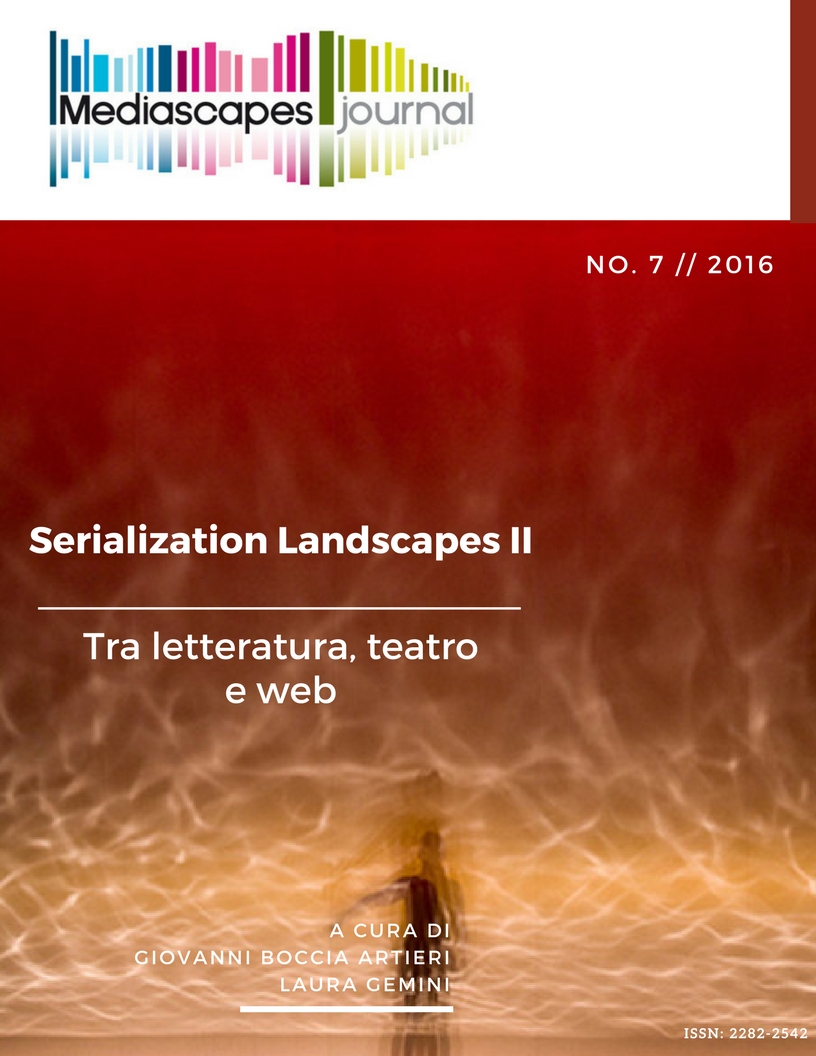L'adolescenza è morta. Serialità e transmedialità nelle saghe fantascientifiche del XXI secolo: Hunger Games, Divergenti, La Trilogia del Silo, Maze Runner
Parole chiave:
Fantascienza, Adolescenza, Transmedialità, Distopia, Guerra civileAbstract
What is surprising if we analyze the major transmedia universes that were created in the last 15-20 years, is that in many of the most successful cases, the narrative core originates in the medium literature. This happens especially in the novel, either by recycling the old hits (such as The Lord of the Rings, The Chronicles of Narnia, House of Cards, etc.) and by producing new ones: Harry Potter, Twilight, A Song of Ice and Fire, etc.
Why is the literary medium so suitable to become the foundation of the new transmedia narrative universes? Since nowadays, when a transmedia narrative universe is designed, the relationships between the various narrative media environments are already sketched in the project; so why in many cases it is better to put the novel as a front door to this universe? It isn’t predictable that the medium which starts the narration is the novel instead of other more recent media like movies or TV series or video games.
How can literature still succeed in being an extraordinary laboratory for producing and testing new forms, metaphors and imagery and anticipating or simulating the future? (Much more than the cinema, for example, which seems to chase the other media).
I would like to try to answer these questions by analyzing four science fiction novel series, came out in the United States between 2008 and 2014, and immediately became world-wide best sellers, especially among teenagers: The Hunger Games, Divergent, The Silo Saga and Maze Runner. The four mentioned series besides being similar in terms of narrative structure and processes of trans medializations (spin-offs, films, comics, videogames, fandoms) also have a certain homogeneity in the covered topics and in the way the dystopian future is imagined. We encounter not only a forms serialization but also one of the imaginary and therefore of collective fears that are behind this stories. It is a post-catastrophic future (nothing new), not characterized by anarchy or by a struggle all against all (like in most previous dystopias), but by a rigid functionalization of space, social roles, work tasks and even (and this is the novelty) identities, skills and emotions. A future populated by teenagers, but forced to give up all the prerogatives of adolescence.
##submission.downloads##
Pubblicato
Come citare
Fascicolo
Sezione
Licenza
Gli autori che pubblicano su questa rivista accettano le seguenti condizioni:
- Gli autori mantengono i diritti sulla loro opera e cedono alla rivista il diritto di prima pubblicazione dell'opera, contemporaneamente licenziata sotto una Licenza Creative Commons - Attribuzione che permette ad altri di condividere l'opera indicando la paternità intellettuale e la prima pubblicazione su questa rivista.
- Gli autori possono aderire ad altri accordi di licenza non esclusiva per la distribuzione della versione dell'opera pubblicata (es. depositarla in un archivio istituzionale o pubblicarla in una monografia), a patto di indicare che la prima pubblicazione è avvenuta su questa rivista.
- Gli autori possono diffondere la loro opera online (es. in repository istituzionali o nel loro sito web) prima e durante il processo di submission, poiché può portare a scambi produttivi e aumentare le citazioni dell'opera pubblicata (Vedi The Effect of Open Access).


